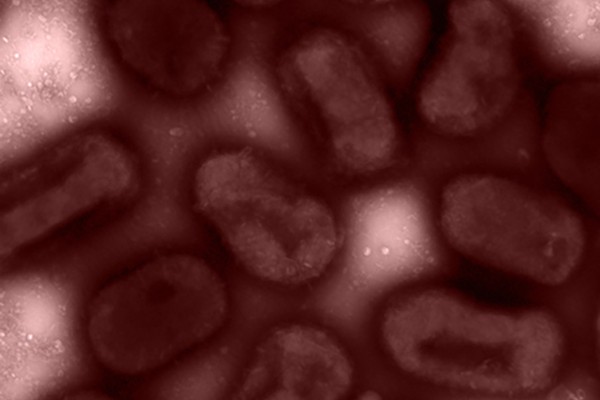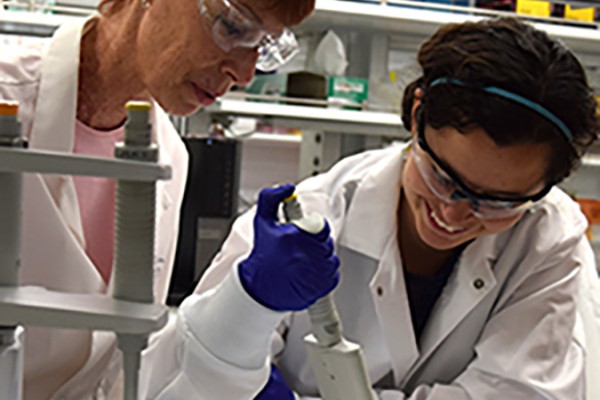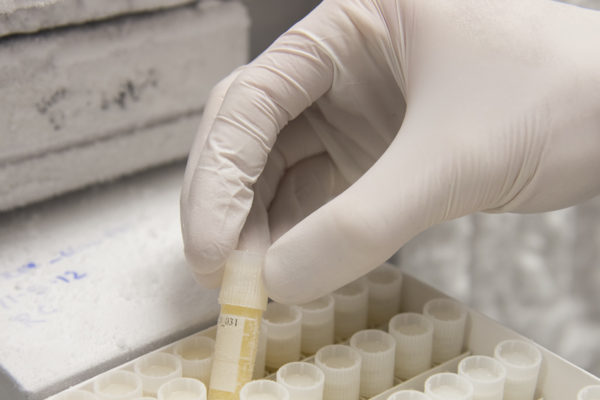Surgery embraces diversity training
Faculty and staff in the plastic and reconstructive surgery, urologic surgery and public health sciences divisions in the Department of Surgery at Washington University School of Medicine in St. Louis have completed all four levels of training offered by the medical school’s diversity and inclusion team.
Drug-resistant bacteria possess natural ability to become vulnerable to antibiotics
Infections with one of the most troublesome and least
understood antibiotic-resistant “superbugs” are increasing at alarming
rates, particularly in health-care settings. But by studying A. baumannii, a frequent cause of difficult-to-treat infections in hospitals, researchers have identified a naturally occurring process that restores its vulnerability to antibiotics.
Cooper named head of biochemistry and molecular biophysics
John A. Cooper, MD, PhD, has been named head of the Department of Biochemistry and Molecular Biophysics at Washington University School of Medicine.
New drugs to treat deadly heart condition aim of $3.1 million study
Jianmin Cui, PhD, professor of biomedical engineering in the School of Engineering & Applied Science, is taking an innovative approach to finding new drug candidates to treat Long QT syndrome with a four-year, $3.1 million grant from the National Heart, Lung, and Blood Institute of the National Institutes of Health.
Siteman Cancer Center earns highest rating from federal cancer institute
The National Cancer Institute (NCI) has awarded Siteman Cancer Center at Barnes-Jewish Hospital and Washington University School of Medicine in St. Louis an “exceptional” rating, based on a rigorous review of Siteman’s research programs. The rating is the highest possible by the NCI, the principal federal institute that funds cancer research.
Midlife changes in Alzheimer’s biomarkers may predict dementia
Studying brain scans and cerebrospinal fluid of healthy
adults, scientists have shown that changes in key markers of
Alzheimer’s disease during midlife may help identify those who will
develop dementia years later, according to new research.
University names new medical school dean
David H. Perlmutter, MD, has been named executive vice chancellor for medical affairs and dean of the School of Medicine. His tenure begins Dec. 1. A former Washington University faculty member, Perlmutter succeeds Larry J. Shapiro, MD, who is stepping down after leading the School of Medicine for 12 years.
Preemies at high risk of autism don’t show typical signs of disorder in early infancy
Premature babies are at an increased risk for developing autism spectrum disorder. But a small study indicates that preemies who avoid eye contact are less likely to demonstrate symptoms of autism at age 2 than preemies who maintain eye contact during early interactions, according to new research at the School of Medicine.
New director of Renal Division named
Benjamin D. Humphreys, MD, PhD, a highly regarded physician and scientist at Harvard Medical School, has been named the director of the Renal Division in the Department of Medicine at Washington University School of Medicine.
A person’s diet, acidity of urine may affect susceptibility to UTIs
The acidity of urine — as well as the presence of small molecules related to diet — may influence how well bacteria can grow in the urinary tract, a new study shows. The research, led by Jeffrey Henderson, MD, PhD, at Washington University School of Medicine in St. Louis, may have implications for treating urinary tract infections, which are among the most common bacterial infections worldwide.
Older Stories






